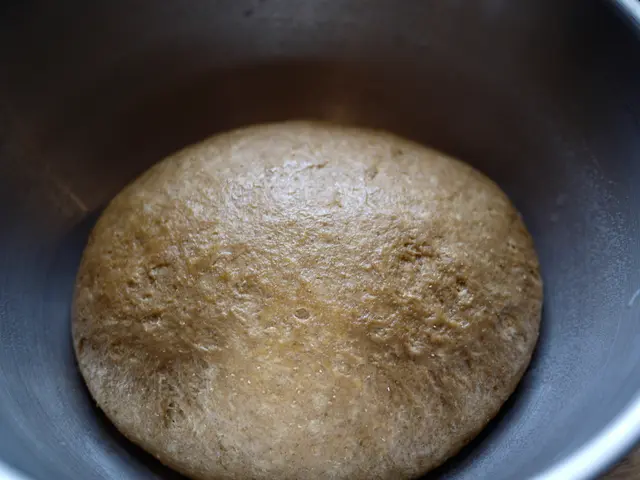Managing Alopecia Areata: Essential Self-Care Strategies
Living with Alopecia Areata: Self-Care Strategies for a Better Life
Alopecia areata isn't a disease that makes you physically ill, but it can certainly take a toll on your emotional well-being. This autoimmune disorder can lead to anxiety, depression, social isolation, and absences from work or school. That's why managing your alopecia areata and practicing self-care is crucial. Here are some essential tips from dermatologist Melissa Piliang, MD, to help you navigate life with alopecia areata.
Embracing Self-Care
Alopecia areata won't just go away, and there's no known cure for the disease. However, there are steps you can take to possibly reduce symptoms and lessen the impact of flare-ups.
Hair Care
Your hair care routine plays a significant role in managing alopecia areata. Here are Dr. Piliang's recommendations:
- Brush softly: Using a soft-bristled brush or wide-toothed comb can minimize tugging, reducing the risk of hair loss.
- Keep shampooing: Don't stop washing your hair because of worries about hair loss. This can lead to dandruff and other issues that may worsen alopecia areata.
- Keep the heat down: To avoid hair stress, use a hairdryer on medium heat or lower, and avoid hot rollers or irons, as they can damage hair and cause breakage.
Sun Protection
Your hair serves as a protective layer against harmful UV rays from the sun, but bald patches can expose your skin to these damaging rays, increasing the risk of skin cancer. To protect yourself:
- Apply sunscreen: Apply a gel-based sunscreen to exposed areas with at least 30 SPF and reapply regularly when outside for extended periods.
- Wear a hat: Cover your head with a solid woven hat to throw shade on your ears, nose, and neck. Avoid mesh or open hats, as they can let sunlight through, increasing the risk of sunburn.
Cold Weather Protection
Hair provides warmth and insulation, and bald patches can lead to a loss of heat. In colder temperatures, you may need to wear a hat or sleeping cap to stay warm.
Adjusting to Other Hair Loss
Alopecia areata can target hair all over your body, but here are a few ways to handle hair loss in areas other than your head:
- Eyebrow loss: To absorb sweat and water, wear a hat, headband, or bandana.
- Eyelash loss: Wearing glasses or sunglasses can help if you lose your eyelashes. If your eyes become irritated, have eye drops on hand to soothe them.
- Nose hair loss: Cover your nose when necessary to reduce debris in your nostrils, and use a humidifier at night to combat dryness.
Managing Stress and Allergies
Stress is not a friend to your immune system, so managing stress and the stress caused by alopecia areata is vital. Find activities that help you destress, such as meditation, taking a hike, listening to music, or talking to a trusted friend, family member, counselor, or medical professional.
Seasonal allergies like hay fever can trigger alopecia areata, so managing your allergies with antihistamines is essential.
Building a Care Team
Now that there are several FDA-approved medications and treatments for alopecia areata, talk to your healthcare provider about your options. Alopecia areata is also associated with other autoimmune diseases, such as thyroid disease, so regular healthcare visits offer the opportunity to detect and treat any other issues.
Final Thoughts
Alopecia areata is an unpredictable disease, but incorporating self-care practices and stress management techniques into your routine can help reduce flare-ups and their severity. While there are no guarantees, taking care of yourself may make the situation a little better. After all, your hair loss may not be permanent, but managing self-care is a gift you can give yourself for a happier, healthier life.
Enrichment Insights
- Diet and Hydration: A balanced diet rich in nutrients, along with adequate hydration, can promote overall health and potentially support hair regrowth.
- Exercise and Sleep: Regular exercise and sufficient sleep help reduce stress and maintain overall well-being, which can indirectly support hair health.
- Scalp Care: Using gentle, sulfate-free shampoos and avoiding tight hairstyles or excessive heat can reduce irritation and stress on hair follicles, creating a better environment for regrowth.
- Massage and Relaxation Techniques: Regular scalp massages, especially with essential oils like lavender or rosemary, can enhance blood circulation to the scalp, promoting hair growth and reducing inflammation.
- Natural Remedies: Supplements like onion or garlic juice and aloe vera gel may help stimulate hair follicles and reduce inflammation.
- Psychological Support: Alopecia areata can have emotional and psychological impacts, so engaging in activities that promote self-esteem and confidence, such as joining support groups or consulting therapists, can help individuals cope with the emotional aspects of the condition.
- Maintaining a balanced diet rich in essential nutrients, along with staying hydrated, can help promote overall health and potentially support hair regrowth, making self-care practices more effective in managing alopecia areata symptoms.
- Incorporating regular exercise and ensuring adequate sleep into your routine can help reduce stress levels, indirectly supporting hair health and overall well-being, thereby making it easier to cope with the challenges of living with alopecia areata.
- Scalp care is crucial when managing alopecia areata, as gentle skincare practices like using sulfate-free shampoos and avoiding tight hairstyles or excessive heat can create a better environment for hair regrowth and reduce scalp irritation.
- Engaging in stress management techniques such as self-care practices like massage and relaxation techniques, specifically focused on the scalp, can enhance blood circulation, promote hair growth, reduce inflammation, and improve the mental well-being of individuals living with alopecia areata.
- Seeking psychological support through activities like joining support groups or consulting therapists can help individuals cope with the emotional and psychological impacts of living with alopecia areata, making self-care practices more effective in fostering self-esteem, confidence, and overall well-being.








